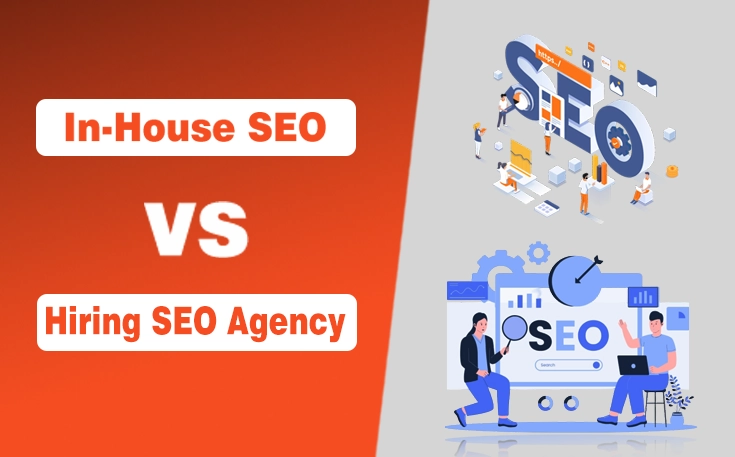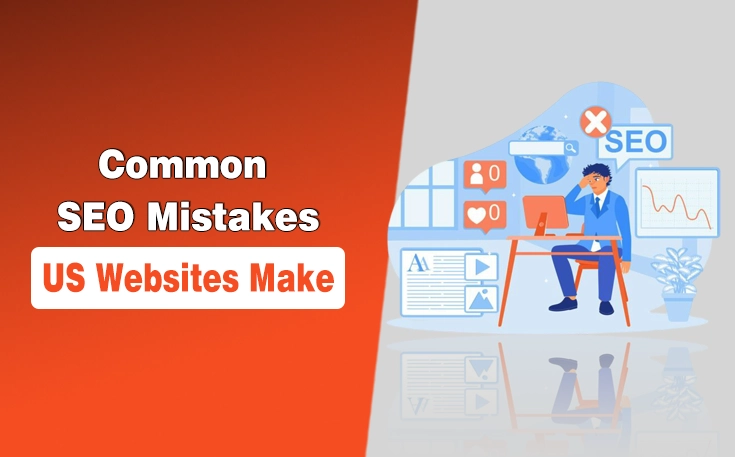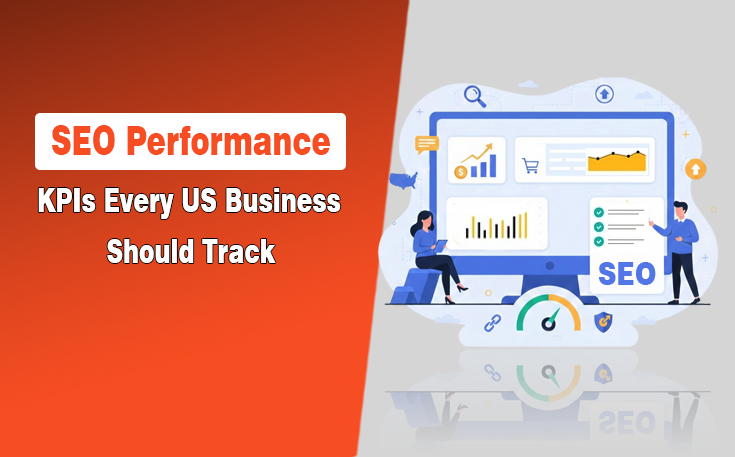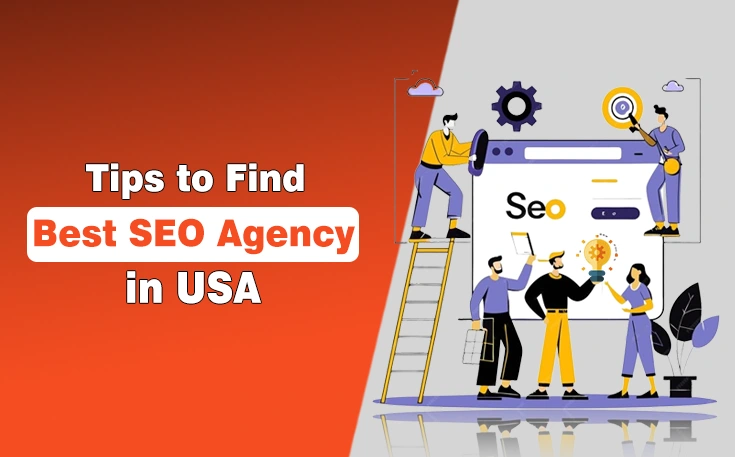Have you ever wondered why some brands seem to be everywhere—on your feed, in your inbox, and at the top of Google searches—while others stay invisible?
The secret often lies in one role: a Digital Marketing Specialist.
A digital marketing specialist helps brands from planning social media campaigns to boosting your website’s ranking. They connect your brand with the right people at the right time, using the right message.
In this guide, we will explain exactly what a digital marketing specialist does, why their role is important, what tools they use, and how they can completely transform your brand’s online presence.
What Is a Digital Marketing Specialist?
A Digital Marketing Specialist is a professional who develops and implements online marketing strategies to promote products, services, or brands. They utilize various digital channels such as search engines, social media, email, and websites to reach and engage customers. Their primary goal is to drive traffic, generate leads, and convert prospects into loyal customers.
Why Is Digital Marketing Important?
Digital marketing is important because it allows businesses to reach a broader audience in a cost-effective and measurable way. It enables real-time customer interaction, personalized marketing, and improved conversion rates. With the increasing reliance on digital platforms, having a robust online presence is essential for brand visibility and customer engagement.
Types of Digital Marketing
To grow your brand in today’s online world, you need more than just a website—you need the right mix of digital marketing strategies. Here are the main digital marketing types, explained simply:
1. Search Engine Optimization (SEO)
SEO is all about helping your website show up higher on Google or Bing when someone searches for something you offer. It brings in free, long-term traffic from search engines with the right keywords, improving your website speed, and creating helpful content.
2. Pay-Per-Click Advertising (PPC)
PPC is a paid strategy where your ads appear at the top of search results or on websites. You only pay when someone clicks on your ad. It’s a fast way to get attention, especially for new businesses or product launches. Regular monitoring and optimization are essential to improve your ppc performance and ensure a good return on investment.
3. Content Marketing
Content marketing involves writing blog posts, guides, eBooks, or even social media posts that educate, inform, or entertain your audience. Instead of directly selling, content marketing builds trust and positions your brand as an expert in your field.
4. Social Media Marketing
Social media platforms like Instagram, Facebook, LinkedIn, TikTok, and Twitter are perfect for reaching your audience where they spend time. These platforms help brands build real relationships and grow their presence if they consistently share engaging posts, run ads, and interact with followers.
5. Email Marketing
Email marketing is one of the oldest yet most effective forms of digital marketing. With email, you can send personalized messages to people who’ve signed up—whether it’s a welcome series, updates, discounts, or educational content.
6. Affiliate Marketing
In this type, you let other people promote your products on their platforms. You only pay them a commission when they generate a sale or lead. It’s low-risk and great for expanding your reach.
7. Influencer Marketing
Influencer marketing strategy involves working with social media influencers who already have a strong following. Their word-of-mouth and trusted voice can help introduce your product to a whole new audience in a more natural and relatable way.
8. Mobile Marketing
Since most people use smartphones, mobile marketing focuses on reaching users through text messages (SMS), in-app ads, or mobile-optimized websites. It ensures your message is right in their pocket—literally.
9. Video Marketing
From YouTube videos to Instagram Reels and brand explainers, video content is visually powerful and emotionally engaging. It helps explain complex ideas easily and boosts trust through face-to-face storytelling.
Responsibilities of a Digital Marketing Specialist
A Digital Marketing Specialist wears many hats to help a brand grow online. Here are the key tasks they take care of, explained in a simple and easy way:
1. Planning and Running Online Campaigns
They create smart, goal-driven marketing campaigns using channels like social media, Google Ads, or email. These campaigns help attract new customers and keep current ones interested.
2. Managing Social Media Presence
From posting on platforms like Instagram and LinkedIn to responding to comments and messages, they build a strong and friendly brand voice online. It’s all about staying active and connected with the audience.
3. Doing Market Research
They study the market, understand customer behavior, and keep an eye on competitors. This helps them discover what people like, what’s trending, and how the brand can stand out.
4. Improving Website and Content
They make sure the website content is helpful, attractive, and SEO-friendly so that search engines can find it easily—and visitors enjoy browsing it.
5. Analyzing Website Traffic
Using tools like Google Analytics, they check how people are using the site—what pages they visit, how long they stay, or where they drop off. This helps in making smart improvements.
6. Reaching Key Goals (KPIs)
They focus on specific goals like:
- Lowering bounce rate (when people leave the site too quickly)
- Increasing time spent on the website
- Improving the number of sign-ups or sales
7. Running Email Campaigns
They design and schedule email newsletters, promotions, or updates to keep customers engaged and informed.
8. Staying Updated with Trends
Digital marketing changes fast. So, a good specialist always learns what’s new—like changes in Google’s algorithm or the latest social media features—and adjusts strategies to stay ahead.
How to Become a Digital Marketing Specialist
Starting your journey as a Digital Marketing Specialist is exciting—and with the right steps, it’s totally achievable. Here’s a step-by-step guide to help you get there:

Step 1: Get the Right Education
Start by earning a bachelor’s degree in marketing, business, communications, or any field related to advertising or media. This gives you a strong foundation in how marketing works, including consumer behavior, branding, and strategy.
Step 2: Earn Valuable Certifications
While a degree is great, certifications show that you’re up to date with the latest tools and trends. Some must-have ones include:
- Google Ads Certification
- HubSpot Content Marketing Certification
- Meta (Facebook) Blueprint
- SEMrush or Moz SEO Certifications
These are often free or low-cost and give you hands-on knowledge that employers love.
Step 3: Gain Practical Experience
Start small, but start somewhere. Apply for:
- Internships
- Freelance gigs
- Entry-level marketing jobs
Real-world experience will help you learn how campaigns are planned, launched, and analyzed.
Step 4: Build a Portfolio
Your portfolio is your proof. Collect examples of:
- Social media posts you’ve created
- Blog articles you’ve written
- Campaign results (with permission)
- Email templates or designs
Even personal or practice projects can be added if you’re just starting out. Show off your creativity and results.
Step 5: Start Networking
Join digital marketing communities, attend webinars, and connect with professionals on LinkedIn. Networking helps you:
- Stay informed about job openings
- Get mentorship from experienced marketers
- Grow your personal brand
Step 6: Keep Learning, Always
Digital marketing is fast-moving. To stay ahead, regularly:
- Read marketing blogs (like HubSpot or Moz)
- Watch tutorials on YouTube
- Follow marketing experts on social media
- Explore new platforms like TikTok or AI tools
The more you learn, the more confident and skilled you become.
Qualifications Required for a Digital Marketing Specialist
To become a successful Digital Marketing Specialist, you don’t always need a strict list of degrees—but there are a few key qualifications that most employers look for:
Bachelor’s Degree
Most roles ask for a bachelor’s degree in:
- Marketing
- Business
- Communications
- or a related field like media or public relations
This gives you a strong understanding of customer behavior, branding, and strategy.
Digital Marketing Certifications
Certifications prove your hands-on skills with modern tools. Popular and respected ones include:
- Google Ads (for search and display advertising)
- HubSpot (for content and inbound marketing)
- Facebook Blueprint (for social media advertising)
- SEMrush or Moz (for SEO skills)
These credentials help you stand out in a competitive job market.
Tool Proficiency
You should be comfortable using digital marketing tools such as:
- SEO tools (like Ahrefs, Moz, or SEMrush)
- Google Analytics (to track website performance)
- Content Management Systems (like WordPress or Shopify)
- Email platforms (such as Mailchimp or ConvertKit)
Knowing how to work with these tools makes your job easier and more effective.
Strong Marketing Knowledge
Besides tools and degrees, you must also understand:
- How digital ads work
- What makes content engaging
- How to create customer journeys
- The latest online marketing trends and best practices
A mix of both theory and real-world skills is what sets you apart.
Essential Skills for a Digital Marketing Specialist
Being a Digital Marketing Specialist isn’t just about knowing tools—it’s about blending creativity, strategy, and analysis to bring a brand to life online. Here are the key skills that make someone great at this role:
Analytical Thinking
Digital marketers need to understand data—like how many people clicked on an ad, how long they stayed on a page, or which content performed best. This helps in making smarter decisions and improving future campaigns.
Creativity
Creativity is what makes a brand stand out. Whether it’s writing a catchy social media post, designing an ad, or coming up with a fun campaign idea, thinking outside the box is a must.
Technical Proficiency
A good specialist knows how to use tools like:
- Google Analytics
- SEO tools (Ahrefs, SEMrush)
- Ad platforms (Google Ads, Facebook Ads Manager)
- Content Management Systems (WordPress, Wix)
You don’t need to be a tech expert, but knowing your way around digital tools helps a lot.
Communication Skills
Clear, friendly, and persuasive communication is key—whether you’re writing an email, posting on Instagram, or explaining results to a client. Good writing and speaking skills go a long way.
Project Management
Digital marketing often involves juggling several campaigns at once. You need to stay organized, meet deadlines, and manage time wisely—especially when working in a team.
How a Digital Marketing Specialist Transforms Your Brand
In today’s crowded digital space, standing out takes more than just having a website or posting on Instagram. A Digital Marketing Specialist plays a powerful role in shaping your brand’s identity, growing your presence, and connecting deeply with your target audience.
Here’s how they truly transform your brand from the inside out:
1. Enhancing Online Visibility
A Digital Marketing Specialist helps your brand get noticed by boosting your presence on search engines like Google. They use SEO techniques such as:
- Optimizing your website content with the right keywords
- Improving site speed and mobile responsiveness
- Building high-quality backlinks
This means that when someone searches for something you offer, your brand is more likely to appear at the top—increasing organic traffic without paying for ads.
2. Increasing Engagement
It’s not enough to just reach people—you need to capture their interest and keep them engaged. A digital marketing expert creates content that:
- Speaks your audience’s language
- Tells compelling stories
- Asks questions or sparks conversations
They understand what your audience cares about and tailor content accordingly, making your brand feel more human and approachable.
3. Driving Conversions
Getting traffic is only half the job—turning visitors into paying customers is the real goal. A Digital Marketing Specialist:
- Designs smooth, effective sales funnels
- Optimizes landing pages for conversions
- A/B tests emails, CTAs, and ads
By improving the customer journey at each step, they help increase sign-ups, purchases, or bookings—whatever your goal may be.
4. Building Brand Loyalty
Consistency builds trust. A skilled marketer ensures your brand tone, visuals, and messaging stay aligned across all digital platforms—from social media to emails to your website. They also:
- Send personalized emails to existing customers
- Reward loyal users with offers or exclusive content
- Listen to customer feedback and respond
This keeps your community engaged and turns one-time buyers into long-term supporters.
5. Measuring Success with Analytics
Every smart decision is backed by data. A Digital Marketing Specialist knows how to use tools like:
- Google Analytics
- Meta (Facebook) Insights
- Email campaign metrics
They track what’s working and what isn’t—then refine the strategy accordingly. Whether it’s increasing conversion rates, lowering bounce rates, or boosting click-throughs, they use data to guide your brand forward.
Tools a Digital Marketing Specialist Requires to Transform Your Brand
To build a strong brand online, a Digital Marketing Specialist uses a powerful toolkit. Each tool helps with a specific task—whether it’s researching, creating, promoting, or analyzing.
Here’s what they typically rely on:
SEO & Keyword Research Tools
These tools help improve your brand’s visibility in search engines like Google:
- Google Search Console – Tracks how your website performs in Google searches.
- Ahrefs or SEMrush – Find keyword ideas, check backlinks, and spy on competitors.
- Ubersuggest – Great for beginners, shows keyword trends and volume.
These tools help you rank higher on search engines and get more free traffic.
Social Media Management Tools
For planning, scheduling, and analyzing social media posts:
- Hootsuite or Buffer – Schedule posts across platforms like Instagram, Facebook, and LinkedIn.
- Later – Ideal for planning visually-rich Instagram content.
- Canva – Easy tool to design stunning graphics and stories without needing a designer.
They ensure your brand stays consistent and active on social media.
Email Marketing Tools
To build relationships and keep your audience engaged:
- Mailchimp – Great for designing and sending email newsletters.
- ConvertKit – Perfect for creators and small businesses.
- Brevo (formerly Sendinblue) – Combines email and SMS marketing.
Helps you stay in touch with your audience in a personal and direct way.
Website & Landing Page Tools
To create fast, responsive, and high-converting websites:
- WordPress or Webflow – Build and manage content-rich websites.
- Unbounce or Leadpages – Design focused landing pages for campaigns.
- Elementor – A drag-and-drop page builder for WordPress.
These platforms help you turn clicks into customers.
Video & Content Creation Tools
To create engaging videos, blog posts, and ads:
- Canva Pro – Also supports basic video editing.
- CapCut or InVideo – For editing marketing videos quickly.
- Grammarly – Ensures your written content is clear and error-free.
- Notion – Organizes content calendars, ideas, and strategy docs.
Great content grabs attention and keeps your brand top-of-mind.
Analytics & Performance Tools
To measure how well your campaigns are working:
- Google Analytics – Tracks visitor behavior on your website.
- Hotjar – Shows where users click, scroll, and drop off.
- Meta Ads Manager – Analyzes Facebook and Instagram ad performance.
Marketing Automation Tools
To save time and boost efficiency:
- Zapier – Connects apps and automates workflows (e.g., send leads from website to CRM).
- HubSpot – A complete marketing CRM with automation, email, and analytics.
- Trello or Asana – For managing campaign tasks and deadlines.
These tools together help a Digital Marketing Specialist plan smarter campaigns, work faster, and deliver better results—bringing real transformation to your brand’s online journey.
The Finale
In a world where almost every customer journey starts online, having a strong digital presence isn’t optional—it’s essential. That’s where a Digital Marketing Specialist becomes your biggest asset.
They don’t just run ads or post on social media—they strategize, analyze, and humanize your brand’s message. From crafting compelling content to driving conversions, they use data and creativity to make your brand shine in front of the right people.
Whether you’re launching a new product, entering a competitive market, or simply want to grow your community, investing in digital marketing expertise can unlock real growth.
The digital world changes fast—don’t get left behind. Let a digital marketing specialist guide your brand forward.
People Also Ask
Q: What is the average salary of a Digital Marketing Specialist?
A: Salaries vary by location and experience but typically range from $50,000 to $70,000 annually.
Q: Do I need a degree to become a Digital Marketing Specialist?
A: While a degree is beneficial, practical experience and certifications can also pave the way.
Q: What tools do Digital Marketing Specialists use?
A: Common tools include Google Analytics, SEMrush, HubSpot, and Hootsuite.
Need custom app with amazing features?
Get a Quote




